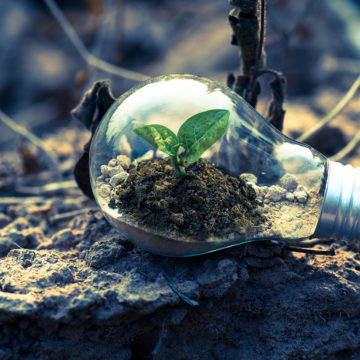Worldwide waste is a major issue that adds to climate change and sustainable human development. You can help diminish the danger of global warming by making a couple of straightforward strides in your home that we at ShockWatch have been accomplishing for quite a while.
Recycling Best Practice
Notwithstanding worldwide deficiencies in recycling capability, appropriately reusing your paper, cardboard, glass and aluminium ensures household items/assets aren’t disposed of in a way that represents harm to the Earth. Local councils supply yellow-lidded containers to Australian residents for free, for disposal of all recyclable material. Keeping two containers inside the home: one for refuse and one for reuse, is an extraordinary method to effectively isolate waste for removal and recycling, respectively. Any recyclable material will show a number from ‘1’ to ‘7’ inside the recycle symbol on the packaging which demonstrates what the material is made of and if the material is recyclable. In Australia, the numbers 1, 2, 3, and 5 are the only products allowed in the yellow bin. The recycling codes and what they stand for can be found here.
Lighting Efficiency
Lighting can utilise a ton of superfluous power which requires consuming non-renewable energy sources. There are a few things you can do that guarantee your power utilisation is as sustainable as permitted by current technology. Use compact florescent or LED bulbs to reduce your lighting bill by 75-90%! Introduce sensor lights inside and outside the home to guarantee that lights are only used when there’s somebody before the sensor. Solar-controlled lighting in the patio must be considered as an option in contrast to petroleum-derivative fuelled lights and whenever possible use natural daylight to your advantage. Power adaptors, or ‘wall warts’ as they are also known, draw energy from the wall all the time, hence why they stay warm even when the device is turned off. Either unplug when not used or attach them to a power board and use the switch to collectively turn them off. And lastly daylight. Free, full spectrum light all day. Try keeping your blinds open, invest in skylights, or ‘piping light’, the art of sunlight being ‘piped’ inside the house via fibre optics.
Composting
On the off chance that you live in a home or apartment with a nursery or space for plants, creating a fertiliser heap is an incredibly easy method to add to the Earth without squandering food scraps that are probably going to sit in landfill otherwise. Any natural material can be tossed into a manure heap and placed on a nursery as compost.
And lack of space really isn’t an excuse. For people who live in apartments or with small courtyards, there’s a small system called a bokashi bin which sits on the kitchen bench or under the sink. Simply add kitchen scraps and a handful of bought fermented grain mix, and it pickles the mix. Or invest in a worm farm. Just add kitchen scraps and cover them with a piece of moist carpet to keep the worms cool. The worm castings collect in the next layer, which are perfect for a potting mix.
Composting decreases the requirement for landfill and offers an economical option in contrast to fake fertilisers available elsewhere. Interesting fact: It takes 12 years for a tree to start absorbing carbon dioxide out of the atmosphere, but digging in your home-made compost starts to work straight away.
Considerate Water Consumption
Water is one of life’s most-valuable assets, particularly in nations as dry as Australia. So, keep your showers to four minutes. Taking shorter showers is one of the best ways to help save water. Wait until your dishwasher or washing machine is fully loaded before you turn it on. Also, turn off the tap while soaping your hands, brushing your teeth or shaving. Make sure you wash your vegetables and rinse dishes in a plugged sink or basin – not under a running tap. Have a plumber install a WELS 4-star rated water saving showerhead and WELS 4-star rated water efficient taps to save on water and energy costs.
And when it comes to the garden, use a broom or rake rather than a hose to clean your driveways and hard surfaces. Plant for the climate and soil in your area. Apply 7-10 cm of mulch around plants to help save water lost through evaporation. Get rid of weeds as they take water away from the plants you want to grow, and group plants with similar needs so they all get the right amount of water without wasting any.
Here at ShockWatch we are all ecologically minded and devoted to supporting the Earth with environmentally cognisant practices. Our impact, tilt, and temperature indicators also help prevent and reduce unnecessary waste and landfill for our environment.


